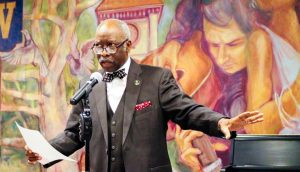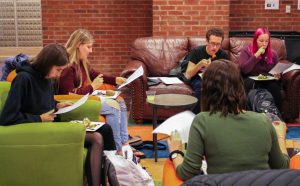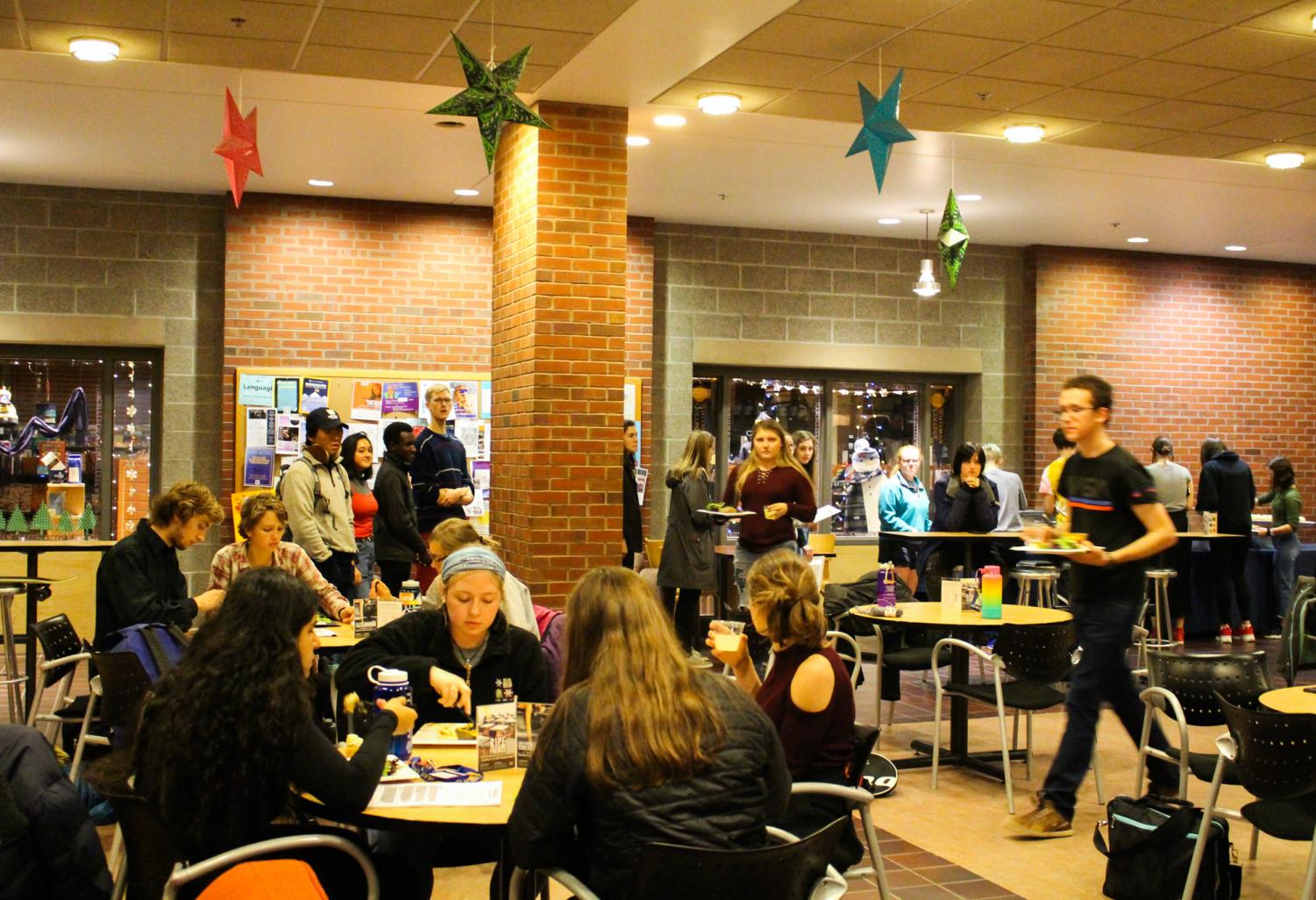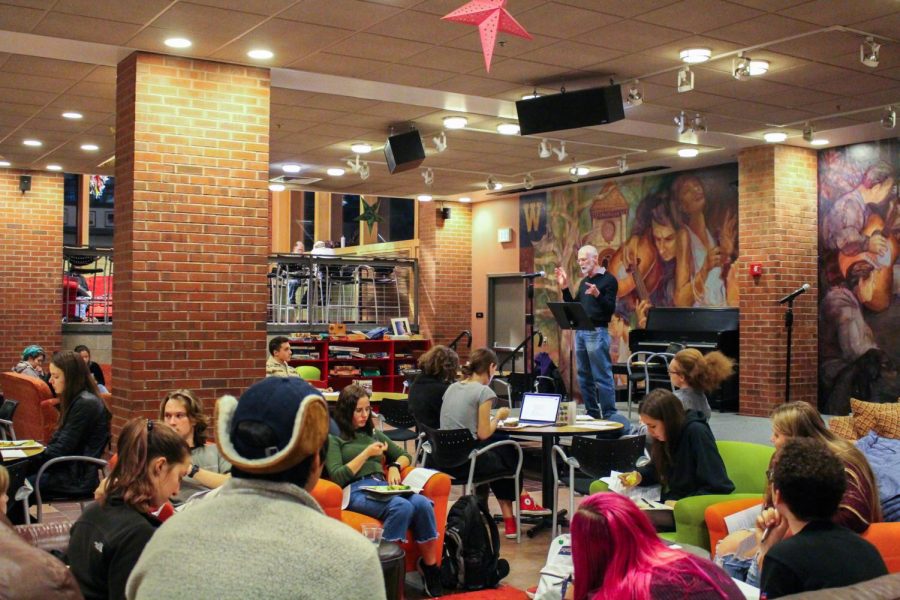Student Code of Conduct explored at ASWC Town Hall
December 5, 2019
This year, President of the Associated Students of Whitman College Isaiah Banta has organized a series of town hall-style meetings on campus, a process formalized in the Associated Students of Whitman College (ASWC) by-laws. The two meetings so far have taken place in common spaces around campus: Reid Campus Center and the Jewett Café.
“Ideally, they happen four times every semester, and what the subjects are is up to the person who organizes them,” Banta said in an interview with The Wire.
This year, Banta chose to mobilize the town hall process in order to address the campus’ need for dialogue.
“Everyone wants dialogue. More importantly, they want to see that dialogue lead somewhere,” Banta said.

He believes the town hall process is effective at producing dialogue that leads to change by bringing students, faculty and staff together so that all can express their desires for the future as well as be assured that the changes they advocate for are being acknowledged in policy.
“My main goals were, for this year, to have student voices be heard, and especially to allow them the ability to make changes in the areas they have concerns in,” Banta said.
This is why he chose to organize town halls on the subject of the College’s upcoming first-year experience change, language and distribution requirements and the Marcus Whitman statue.
The Nov. 20 town hall was organized to provide an opportunity for students to review and address possible grievances with the Student Code of Conduct.
Dean of Students Kazi Joshua opened the event with a speech recapitulating an email he sent to the student population at the beginning of the fall semester. In this email, Joshua noted that the Code of Conduct “has not been reviewed in some time,” a fact echoed by town hall speakers Senior Associate Dean of Students Juli Dunn and Professor of Politics and Leadership Emeritus Timothy Kaufman-Osborn.
First-year Lauren Olson said she sees the potential impact of this event on student life.
“This could have the impact of setting a precedent for future changes and creating a student (and even potentially faculty code) that is more representative of Whitman today,” Olson said in an email to The Wire.
Olson also expressed her interest in changing several items in the code, which Kaufman-Osborn brought to the attention of the attendees in a speech delivered at the town hall.
“I find it concerning that the language allows power to the one interpreting, but is not clear when it is read by students,” Olson said.
Banta said he invited Kaufman-Osborn because what he said, “has interesting implications for what actions and demonstrations Whitman students could be disciplined for, even though they aren’t right now.”
Kaufman-Osborn explained how the prohibition on “lewd, indecent, obscene expressions … that infringes on the rights of others,” as expressed in the code, was subject to a wider range of interpretation than appropriate in a code governing the conduct of all students.
According to Kaufman-Osborn, a rule is just only if those who are meant to obey it understand its meaning. If students cannot reliably interpret the Student Code of Conduct according to how its enforcers would interpret it, then Kaufman-Osborn believes it is unjust.
Kaufman-Osborn also explained how this rule against “lewd expression” was possibly violated on campus in recent memory, when students in a gender studies class displayed pornography in Olin Hall as part of an educational presentation on the function of pornography in gender. These students, he argued, were engaging in the pursuit of knowledge, but the code could have prevented them from doing so. According to Kaufman-Osborn, the code’s purpose is to create an environment conducive to learning on campus, and if it prevents students from pursuing knowledge it is not doing its job.
Kaufman-Osborn also addressed the clause of the code which allows “any faculty or recognized student [to] invite any speaker [to campus],” regardless of their views or the topic of their speech. This would seem to suggest, according to Kaufman-Osborn, that anyone could invite a speaker who advocates for white supremacy to campus, giving them a platform to deliver a public address. This action could prevent the ability of students of color to focus on their schoolwork and thus deteriorate the educational environment of the college. According to Kaufman-Osborn, this is another way the code may act against its stated purpose.
Dunn said she has wanted to see a public review of the Code for several years. According to Dunn, engaging with the student body on the revision of the code is important to her work.
“Updating the code to be more representative of the students of today versus the students of the 1970s will make my work more clear,” Dunn said. She also said she looks forward to possible further engagement with students throughout the Code of Conduct review.
“I would hope that future open [forums] or future town halls provide additional opportunities for members of the community to be involved in these important revisions,” she added.






